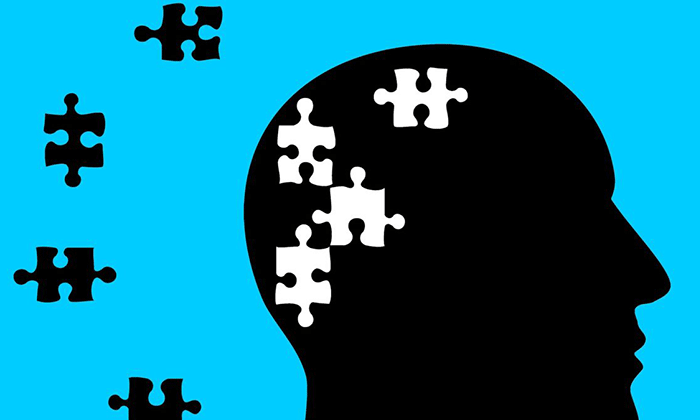The politics of forgetting
There’s something fundamentally Proustian about General Ibrahim Badamasi Babangida in Nigerian politics, and that fact was animated by his Arise TV interview, which was aired on August 6. Since leaving office in 1993, his regime has been the premier reference book of our quests for a model leader and cited in cautioning his successors on […]

There’s something fundamentally Proustian about General Ibrahim Badamasi Babangida in Nigerian politics, and that fact was animated by his Arise TV interview, which was aired on August 6.
Since leaving office in 1993, his regime has been the premier reference book of our quests for a model leader and cited in cautioning his successors on things never to do again.
- Family members of murdered ISIS fighters repatriated to Abuja
- PODCAST: IDP Camps: A Ticking Time Bomb
He was maligned as a villain and his exit—after annulling a presidential election in which the victor had been unofficially established—was celebrated as a stride into the civilization; a civilization that never happened.
Most of the reactions to his interview I’ve come across were unusually benign. This dignifying of his views by the public inspired a contest among some admirers, some of whom weren’t born when he was in office, to list his accomplishments in office. Even his critics would be amused that a character so scapegoated was responsible for some of the projects named, which included the relocation of Nigeria’s capital from Lagos to Abuja and construction of the iconic Third Mainland Bridge, which was the longest bridge on the continent when it was completed in 1990.
In an earlier interview, and to remind us of the failings of his successors, the former head of state declared, almost boasting, that the bridge project was executed without borrowing and that no government today could replicate that without rushing abroad for loans. It was a cruel joke, and yet a memory that seems to underline the seeming futility of our struggles for a better alternative since his infamous “stepping aside” and return to his hill-top mansion in Minna.
On Arise TV, the wily General was asked to weigh in on the journey since he left control of Nigeria. The anchor reminded that his regime institutionalized corruption, and his response was calm and mocking: “From what I read, from analyses,” he said, “I think we are saints.” He paused, and then added, “when compared to what’s happening under a democratic dispensation”. He was quite articulate and self-assured for a man his age, an 80-year-old who’s weathered so many political ordeals.
But, again, it seemed like an absurd excuse, a familiar whataboutism often deployed by dictators to evade scrutiny. In defending his point, the General stated that he sacked a governor during his time for stealing about N313,000. It was, I fear, a trick to get us to compare the past and the present, and in the latter, one can’t miss that unholy image of President Muhammadu Buhari raising Governor Abdullahi Ganduje’s hand at a rally in Kano to endorse him for a second term. This was despite the trending video of the governor stuffing bundles of dollars in his babbar riga; an investigation of which the outcome is probably still in some dusty cupboard at the EFCC office.
Although psychologists have argued that our nostalgic preferences of the past are often a case of memory biases, selective amnesia, history is replete with vast data and literature to aid such comparisons. The benign recollections of Babangida’s days may be a bias at work, noting the devastations of his foreign-dictated economic policies and human rights records, but it’s also sensible to ask if there is a difference between his regime and what we call democracy today. We remember differently, and sometimes such positions are political.
A few days ago, I got tired of ignoring a rumour, which had been making the rounds for a while now, that former President Goodluck Jonathan was flirting with the idea of moving to the APC and that he had even been promised the ruling party’s presidential ticket. I asked a friend, who’s an active member of the party, to confirm and he cheekily welcomed the idea without exactly confirming it. His disdain for Jonathan in the buildup to the 2015 elections, like the rest of us disappointed in Nigeria’s compromised security then, was so much that he shared that Jonathan must be the most unintelligent opportunist to have ever occupied the seat of power.
Jonathan’s transition from that much-hated villain to one whose return is being analyzed as a possible scenario by those who once wrote him off, is a complication of our political hypocrisy, this politics of forgetting. Under the same Jonathan, bombs were going off across the country like firecrackers on Christmas Eve, and Boko Haram went to the extent of capturing a swathe of Nigerian land about the size of Belgium. Unfortunately, the country is still the mess inherited from him.
I don’t believe it’s just memory bias that drives our nostalgic preferences and romanticization of past governments and leaders, especially by those who have once fiercely opposed them. The Germans don’t wish for Hitler upon them again even though it’s been 76 years since he masqueraded as their messiah. Of course, there’s been a resurgence of white nationalists in Western Europe, but the collective consciousness of the people has wavered.
So, governance is measurable, and there are various performance indices to deploy in doing so. That Babangida’s and Jonathan’s successors were underwhelming are measurable, and it can be established whether such decline is the reason for the nostalgic preferences. It’s not any rosy introspection that enabled our culture of romanticizing our past political leaders, it’s downright lazy skimming and interrogation of our political history.
